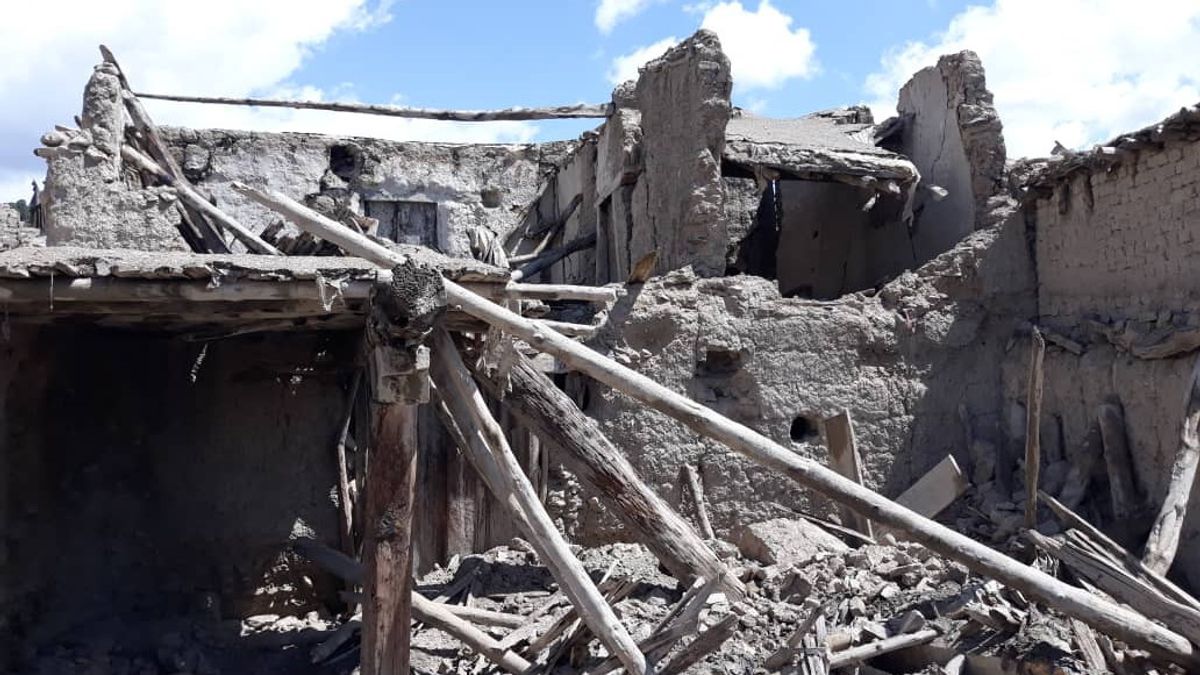JAKARTA - The magnitude 6.1 earthquake that rocked Afghanistan has caused the number of dead and injured to continue to rise, with many victims trapped among the rubble of collapsed buildings.
In June, a ruling Taliban official said the death toll had reached 1,000 people and 1,500 injured. Making this the deadliest earthquake to hit Afghanistan in the last two decades.
Maximum rescue efforts and searches continue to be carried out by local authorities. But, with only a handful of airworthy planes and helicopters remaining since the Taliban returned to power, the immediate response is limited.
Residents are also trying to do self-rescue with what they can do. Like Karim Nyazai, who at the time of the incident was in the provincial capital, rushed back to his devastated village and killed 22 members of his family.
"I am far from my family who live in a remote village in Gyan district. I go there as soon as I can find a car in the morning," he told The Guardian.
"The whole village was buried. Those who managed to get out before everything fell, managed to get the bodies of their loved ones out of the rubble. Corpses wrapped in blankets were everywhere," he said.
"I lost 22 members of my [big family] including my sister, and my three brothers. More than 70 people in the village died," Karim whispered.
Meanwhile, one of the survivors, Arup Khan (22), who was pulled out of the collapsed guesthouse, described when the earthquake occurred. "It was a terrible situation. There was crying everywhere. My children and family were under the mud."
Wednesday's quake struck at around 1:30 a.m. local time at a depth of 10 km (six miles), about 47 km southwest of Khost, according to the United States Geological Survey. The earthquake struck about 44km from the city of Khost and its tremors were felt as far away as Pakistan and India. Witnesses reported feeling earthquakes in the Afghan capital, Kabul and the Pakistani capital, Islamabad.
The Taliban official asked the UN to "support them in assessing needs and responding to those affected", Sam Mort of Unicef's Kabul unit told the BBC.
The English, Chinese, Japanese, Arabic, and French versions are automatically generated by the AI. So there may still be inaccuracies in translating, please always see Indonesian as our main language. (system supported by DigitalSiber.id)








